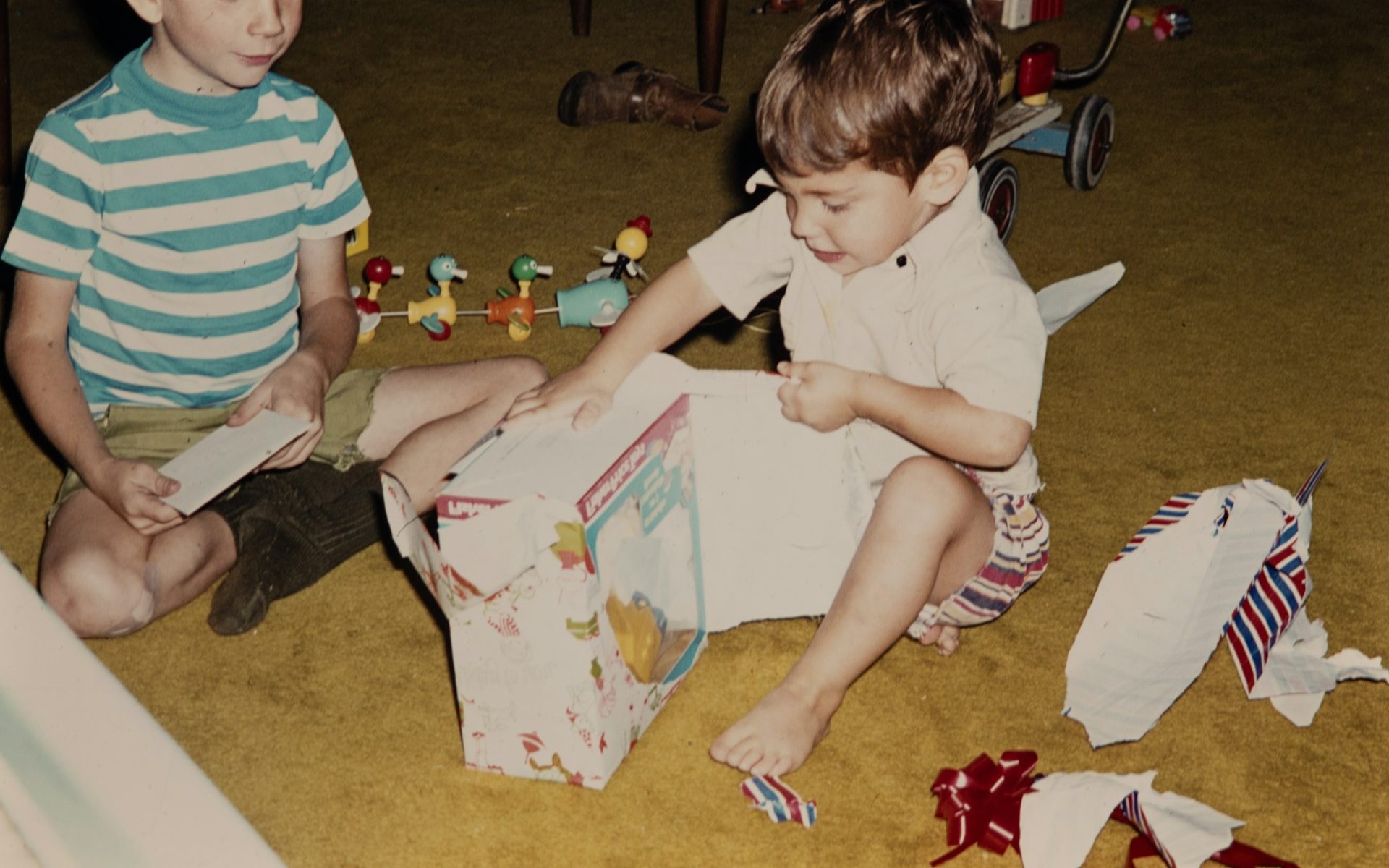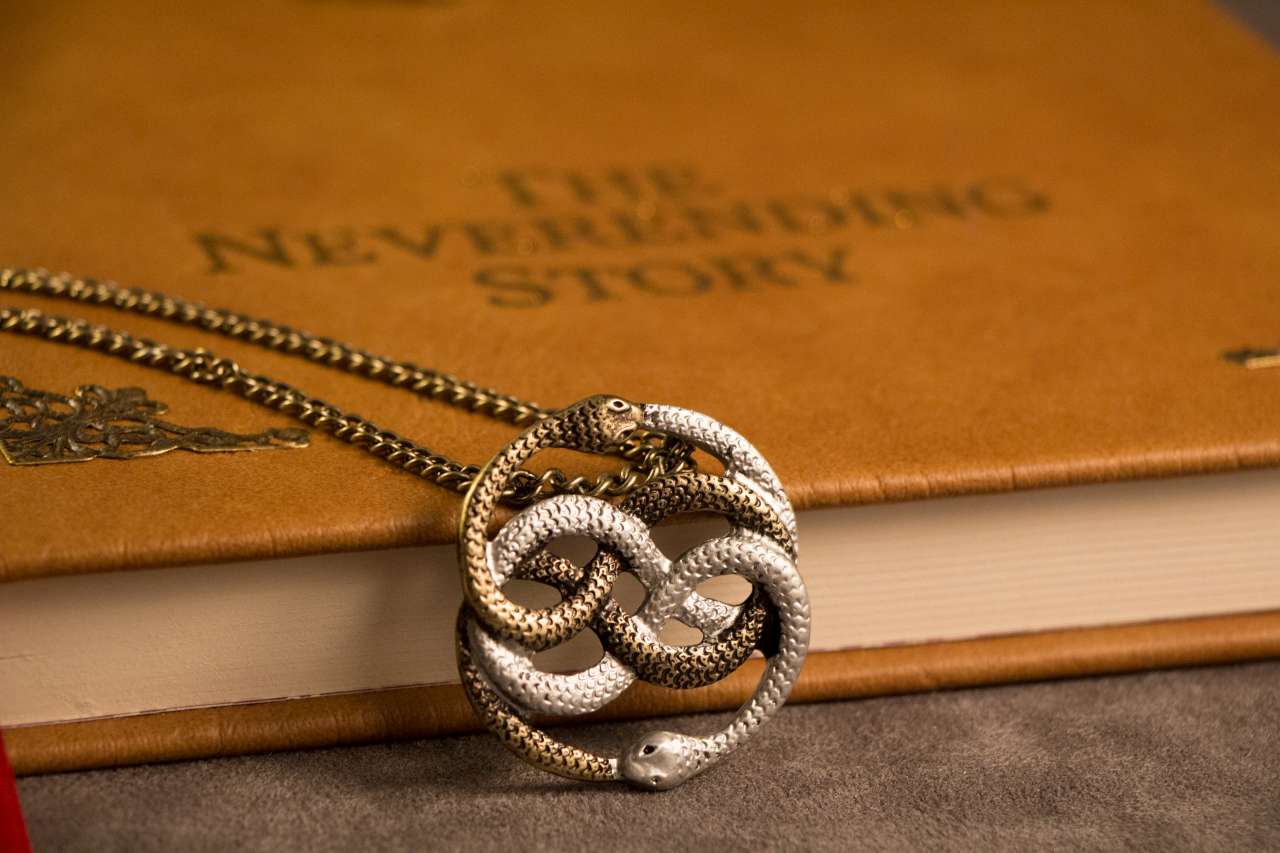Kids are experts at the hermeneutics of presentation.
Wait, what? Come again. English please.
OK. Let’s say that a little differently. Kids are experts at determining how good a gift will be based on its size, shape, and the type of wrapping paper it is in. There. The hermeneutics of presentation. Rare is the Christmas morning where parents have to say, “Timmy, stop opening up all the cards and reading them and start opening up the big presents.”
We have to teach proverbs like ‘beauty is only skin deep’ and ‘don’t judge a book by its cover’ because we automatically treat beauty as skin deep and judge our books by their covers. Kids are experts at sizing up how valuable the contents of a package will be based on the way it is wrapped. Part of maturing is learning how to see through the wrappings and judge with greater clarity. Said differently, part of maturing is learning to read the way that wrapping paper guides you and choosing to accept or reject the message it sends.
And that’s a wrap
The importance of wrapping doesn’t go away when Christmas gifts turn from wrapped packages to cards with cash. The importance of wrapping hangs with us our entire lives. The ‘wrapping’ gives us cues all throughout life about what is on the inside…and how we should interact with it.
Interpreting through the wrapping is evident in why we make (largely) unconscious judgments about peoples’ competency and character based on what they wear.
Interpreting through the wrapping is evident in Ford vs. Chevy battles. Or the John Deere vs. … wait, does anybody else make tractors even worth buying? Although it is difficult to independently find any consistent, real advantage in one over the other, try convincing someone who has learned that the running yellow deer is a symbol of the unmatchable quality of whatever machine it is emblazoned on. Brands matter. And they are essentially wrapping paper helping you interpret the contents inside.
Get the point? We are always interpreting the contents by the wrapping.
The ‘Trump’ Bible
On Good Friday morning, I read in the news about Donald Trump endorsing the God Bless the USA Bible. This Bible—a KJV, for those interested (since the KJV text is in public domain no modern publisher needs convincing to undertake the potential risk in this endeavor)—not only contains the Bible, but many core texts that have become associated with patriotism:
- Handwritten chorus to “God Bless The USA” by Lee Greenwood
- The US Constitution
- The Bill of Rights
- The Declaration of Independence
- The Pledge of Allegiance
And all of this wrapped inside a cover with the American flag emblazoned on the cover, proudly sporting the phrase, “GOD BLESS THE USA.”
Others can debate the potential motives for Donald Trump to ‘endorse’ a Bible. And they should.
I’ll tell you that when I read about this, I had two feelings: (1) bewilderment and (2) a sick feeling in the pit of my stomach. Have we really gone there?
You are free to think and feel many things about the current political climate and candidates of our country. As a pastor writing this, I invite you to think for a few brief minutes about interpreting the wrapping paper. Because everything is wrapped up to help us interpret it. Including the GOD BLESS THE USA Bible.
When you mix politics and religion…
Is there anything wrong with publishing a Bible that has several important American legal texts and a cult-favorite song attached to it? Is there anything inherently wrong with putting an American flag on the cover of a Bible? Or the words GOD BLESS THE USA featured prominently below the title HOLY BIBLE?
I invite you to consider that the answer is yes. There is something wrong. Wrapping paper matters for how we understand what is on its inside. Framing the Bible within a particular version of the trappings of American patriotism—a flag, the God bless the USA slogan, and American legal documents—sends a message about how to understand what is wrapped up on the inside. The very idea that a potential president stands in a position to endorse the Bible is itself offensive. What possibly is lacking in the Scriptures themselves, and in their long history within our culture, that Donald Trump feels he can add to with a word of endorsement?
When you mix politics and religion you get…politics. And Jesus had some cutting guidance for us regarding politics.
God and Caesar
When Jesus was asked about paying taxes, remember what he said?
18 But Jesus, aware of their malice, said, “Why put me to the test, you hypocrites? 19 Show me the coin for the tax.” And they brought him a denarius. 20 And Jesus said to them, “Whose likeness and inscription is this?” 21 They said, “Caesar’s.” Then he said to them, “Therefore render to Caesar the things that are Caesar’s, and to God the things that are God’s.” (Matthew 22:18-21 ESV)
A simple lesson from this: there are concerns in following God that are bigger than the concerns of the state. In terms of wrapping paper, the bigger wrapping of life should be “rendering to God the things that are God’s,” not “rendering to Caesar the things that are Caesar’s.” It is instructive that the religious leaders hadn’t thought of this when they came up to Jesus with a question they viewed as a trap. The allure of political wins in the moment tends to obscure what is God’s and what is Caesar’s.
At this moment of high political conflict, I invite us all to reflect on this key point. What you do with voting and advocating in politics has many strands of influence and many motives. Make sure one of those—and a deeply important one—is asking the question, “Whose kingdom is this advancing, God’s, or man’s?” It is hard to imagine how wrapping up the Holy Bible in the trappings of American patriotism at this juncture of American history is aimed at advancing God’s kingdom.
If there is anything true about the current moment in American politics it is that it inspires passionate feelings. Whatever passionate feelings you have in this moment, I invite you to consider this. Are the interests of God’s kingdom advanced by such an overtly political wrapping paper?
Wrappings send a message: Are you listening?
The God Bless the USA Bible is not troubling because of the Bible. Nor is it troubling because of the American patriotic and governmental texts. It is concerning because it wraps the Bible up in the trappings of American politics as though the politics are the more important reality. That sends a message. All wrapping sends a message.
Just ask kids at Christmas time.
Photo by Annie Spratt on Unsplash





